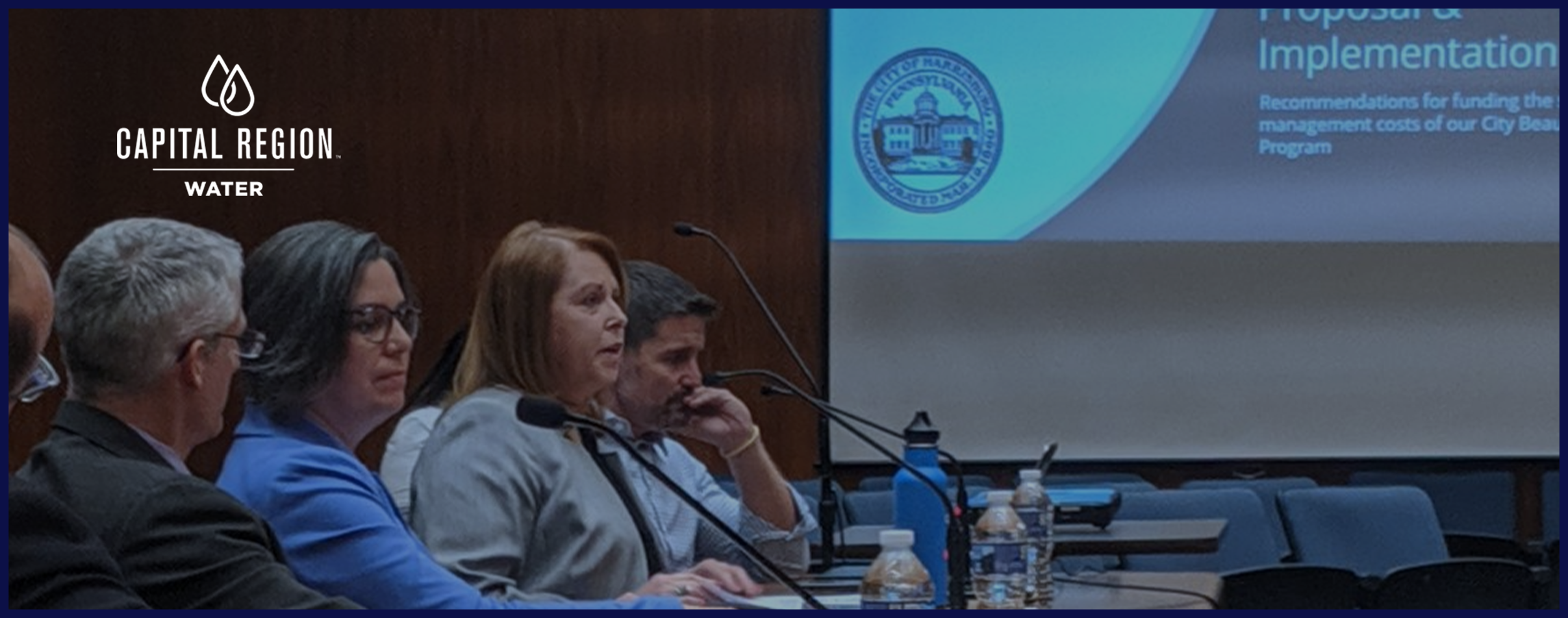
ISSUE
A beleaguered municipal utility with a combined sewer system. A stormwater fee proposed to fund long term investments. A powerful elected official allied with some property owners to push privatization instead.
These were the ingredients of a showdown in 2019. Harrisburg, Pa. is a financially distressed city on the banks of the Susquehanna River. It is one of nearly 800 cities across the country with a combined sewer system, trying to manage state and federal laws that require pollution reductions. About 60 percent of the city’s sewer pipes are part of that combined sewer system. Nearly 40 percent of its sewer and stormwater infrastructure needs to be repaired or replaced.
Finding creative ways to manage stormwater and polluted runoff is a priority. Capital Region Water is transforming vacant lots into green spaces to manage stormwater from surrounding streets, installing raingardens and other stormwater infiltrating features in community parks, and managing stormwater with street-level planters to provide traffic calming.
To expand on these efforts, Capital Region Water proposed a stormwater fee on impervious surfaces to control runoff and combined sewer overflow events. Nationwide, nearly 1,700 jurisdictions, including several in central Pennsylvania, have similar policies in place. In Harrisburg, the fee would raise about $5 million annually in dedicated funds specifically for stormwater operations and related projects.
The plan faced opposition, especially among larger property owners, as well as the city’s mayor, who threatened to sell off Capital Region Water to a private water company, even though he did not have the authority to do it.
RESULT
The utility hired Ceisler Media to run an aggressive media campaign that included facility tours, letters and guest opinions, editorial board meetings and first-person testimonials by prominent local figures who expressed support for the initiative. We worked with organization leaders to prepare content and delivery of testimony. Our firm helped to facilitate several public meetings and a petition drive to show wider support for cleaner water. Pressure was put on City Council to challenge the mayor’s sale plan as misguided and retributive rather than serious.
After six months of heated campaigning, Capital Region Water secured passage of the stormwater fee and immediately began to invest in community and system improvements throughout the city to meet regulatory requirements and improve local waterways. Meanwhile the mayor withdrew his proposal and finally conceded that privatization was off the table.